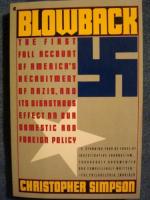|
This section contains 2,836 words (approx. 10 pages at 300 words per page) |

|
Struggle between the Western democracies and the Eastern Communist nations was probably inevitable from the first shot fired in the Russian Revolution of 1917. Guided by one of the essential tenets of Karl Marx and Friedrich Engels' Communist doctrine—"Capitalism contains within itself the seeds of its own destruction"—Eastern nations believed in the eventual worldwide triumph of Communism and were motivated to help speed the day. The nations of the West, on the other hand, long regarded Communism (and those governments espousing it) as a threat striking at the very heart of the capitalist economies that formed the basis of many Western democracies. The differences between these two ideological standpoints produced a state of disharmony that broke into open, if limited, warfare twice (in Korea and Vietnam), but remained for the most part a muted conflict—a "cold" war.
Historians disagree about the exact point at...
|
This section contains 2,836 words (approx. 10 pages at 300 words per page) |

|


